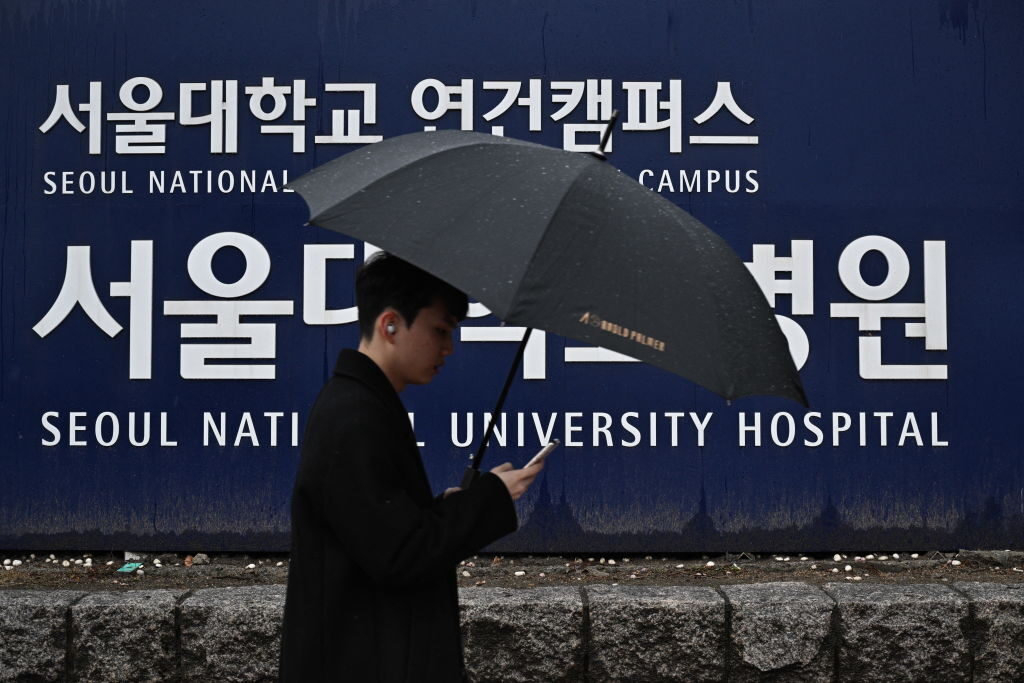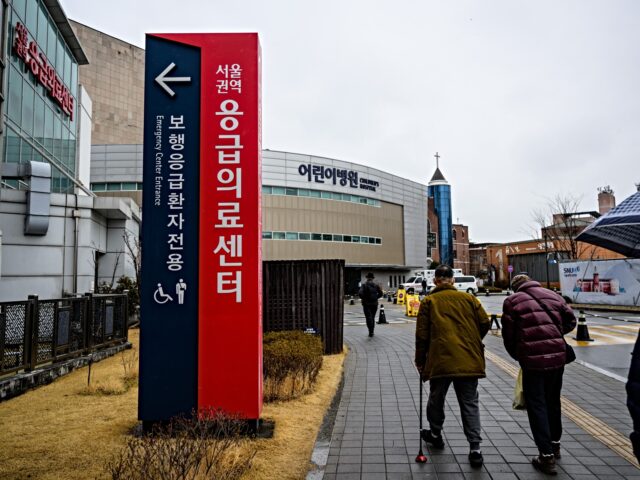The South Korean healthcare system was paralyzed on Tuesday by a doctor’s strike, forcing delays in scheduled surgeries and raising public anxiety that essential hospital services will be unavailable.
The government of President Yoon Suk-yeol on Wednesday threatened to arrest organizers of the strike and launch criminal investigations of individual doctors who refuse to return to work.
The South Korean Justice and Interior Ministries held a joint press conference with police and prosecutors on Wednesday to warn of severe consequences if “illegal collective action actually results in damage to the lives and health of patients.”
In addition to individual prosecutions, the ministries and police agencies said they would hold medical institutions “accountable to the highest level.”
Over 1,600 trainee doctors walked off the job on Tuesday to protest a government plan that would boost medical school admissions by some 2,000 students beginning in 2025, with the ultimate goal of adding 10,000 by 2035. By Wednesday, over 70 percent of the country’s 13,000 trainee doctors had resigned.
South Korean medical schools currently admit about 3,000 students per year, so the reform plan would quadruple admissions by 2035. President Yoon said this was necessary to expand healthcare access in rural areas and give the South Korean medical system enough manpower to adjust to the latest technologies.
“Many people are experiencing inconveniences due to the shortage of doctors,” Yoon said during a Cabinet meeting on February 6, a few days before the detailed plan to increase admissions was unveiled.
“In order to protect the people’s health and lives, expanding the workforce of doctors is a task of the times that cannot be delayed any longer,” he said.
Yoon said his reform package was prepared in consultation with “various voices from the medical community, experts, patient groups, and the people.”
In addition to training more doctors, the plan called for reforms to medical liability laws, investments in local hospitals, and the establishment of “a fair compensation system for essential medical care through public policy fees.”
Polls showed over 75 percent support from the public for increasing the number of doctors, with particular emphasis on more doctors for emergency units, pediatrics, and clinics beyond the capital of Seoul.

A man walks past signage for the Seoul National University Hospital in Seoul on February 21, 2024. More than 8,800 junior doctors — 71 percent of the trainee workforce — have now quit, said Seoul’s Second Vice Health Minister Park Min-soo, part of a spiralling protest against government plans to sharply increase medical school admissions. (ANTHONY WALLACE/AFP via Getty Images)
South Korea presently has roughly 2.6 doctors per 1,000 people, well below the average of 3.7 for developed nations, and the population is aging rapidly thanks to one of the worst fertility crises in the world, increasing the need for physicians.
Yoon immediately faced opposition from doctors’ groups, who said dramatically expanding medical school admissions would drive down the salaries of doctors. Critics of Yoon’s plan said it would be better to pay doctors more and allocate their time more wisely. Some warned that dramatically increasing the supply of doctors would lead to more money spent on unnecessary medical procedures, with a corresponding drain on the finances of the national health insurance system.
A common criticism from South Korean doctors was that the current system only makes a few specialties and areas attractive to new physicians, so if the government wants to get more doctors into rural areas and beef up the resources for neglected specialties, it would be better advised to make them more profitable career choices. Trainee doctors working long hours felt the Yoon administration was scapegoating them for the serious problems in the medical system.
On Monday, the Health Ministry warned doctors to stay at their posts and threatened to suspend the medical licenses of the most aggressive critics from the Korean Medical Association. Hospitals nevertheless reported disruptions in services on Monday afternoon as doctors began walking out, and on Tuesday morning a wave of mass resignations hit the medical system.
Seoul’s five biggest hospitals reportedly began canceling and delaying surgeries due to missing doctors on Wednesday. The chaos at hospitals was made even worse by throngs of patients rushing in to receive treatment when they knew a strike was imminent. Patients told reporters they had never seen longer lines for treatment at Seoul hospitals.
Second Vice Health Minister Park Min-soo told reporters on Tuesday his office has already received 92 public complaints about missing doctors and canceled appointments. He said the government has ordered 6,112 of the missing trainee doctors to return to work immediately.
“No country in the world has seen medical workers taking collective action while leaving critically ill and emergency patients,” Park noted.
“I am disappointed and concerned over the idea of doctors’ groups believing that doctors’ rights come before patients’ lives. The trainee doctors’ right to take collective action cannot have precedence over people’s basic right to life,” he said.
Park said the government has extended operating hours at public hospitals and brought in military doctors to cope with the personnel shortage.
As of Wednesday, the striking trainee doctors showed little sign of complying with the order to return to work. Instead, the Korean Intern Resident Association (KIRA) demanded the Yoon administration withdraw its “ridiculous” plan to increase medical school admissions, and castigated the government for treating the striking doctors like “criminals” by “overusing extrajudicial executive orders” against them.
The head of the KIRA, Park Dan, said on social media that he has submitted his own resignation to protest the “messy policy” proposed by the government, and he has “no thought of returning” to his job.

COMMENTS
Please let us know if you're having issues with commenting.